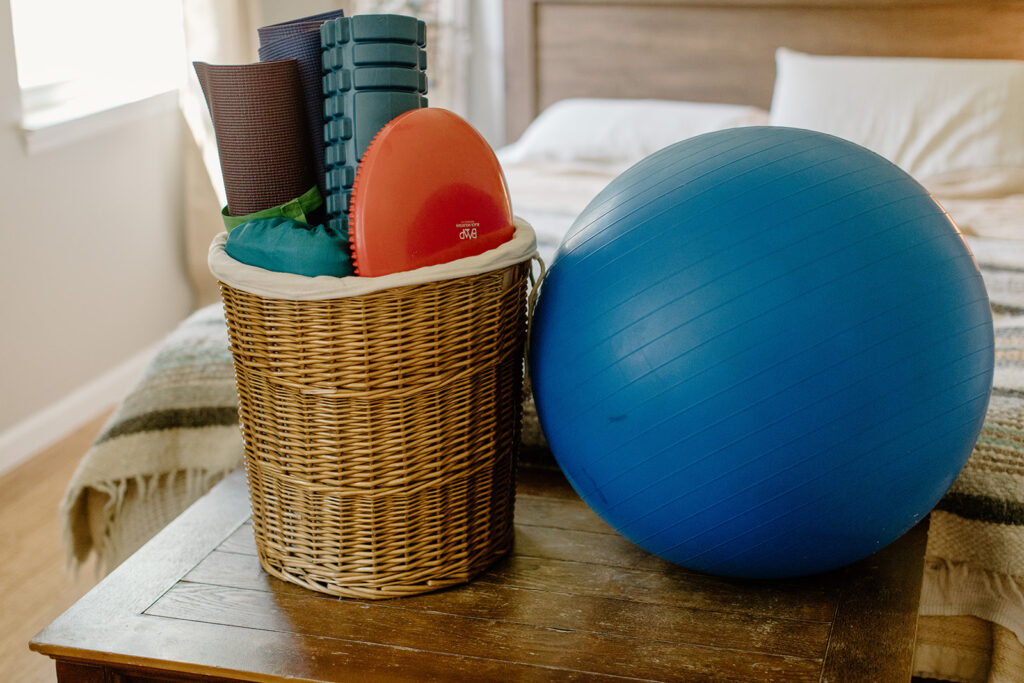
Homebirth Labor Doula Support 101
Perhaps your last hospital birth was traumatic, or it simply didn’t meet your expectations. Maybe the pandemic shifted your perspective, making you reconsider the hospital setting altogether. Or maybe you’ve heard stories from a friend who had a positive homebirth experience, sparking your curiosity. You might even think back to how your grandmother or great-grandmother birthed at home and wonder why that’s become less common. I often hear women ask, “Is homebirth really an option? Do people actually do that?” So, let’s explore it: Is homebirth truly a viable choice? What’s the real story?
What is homebirth?
A homebirth is exactly what it sounds like—giving birth in your own home. It doesn’t matter if you own or rent, live in a house, a townhome, or even an apartment. Some people invite family to be part of the experience, while others prefer a quieter atmosphere with just their birth team.
Who attends a homebirth? What does care look like?
If you choose a homebirth, you can work with either Certified Nurse Midwives (CNMs) or Certified Professional Midwives (CPMs). Some opt for unassisted births, where only a partner, family, or a doula is present. With a midwife-led homebirth, your prenatal visits are more personal—typically lasting about an hour compared to the usual 15 minutes with an OBGYN. During these visits, you’ll cover everything from physical and emotional well-being to nutrition, vaccines, your birth plan, and more. Your midwife can also handle blood work, glucose testing, and thyroid checks if needed. Around 28-30 weeks, your visits may become biweekly, increasing to weekly check-ins by 36-37 weeks. When it’s time to give birth, your team usually includes your midwife, a backup or assistant, a doula if you have one, and your partner. You’re welcome to invite anyone else you’d like to be there!

What is the doula’s role in a homebirth?
Most women hire a doula around 20 weeks, but some start looking right away! Doulas usually meet with clients 2-3 times before the birth and will attend a home visit with your midwife around 37-38 weeks. They offer emotional support throughout your pregnancy, informational support to ease any uncertainties, and physical support during labor. Doulas often provide meditations, journaling prompts, stress relief techniques, and rituals like The Closing of the Bones during postpartum. As experienced professionals, they have effective strategies for managing discomfort during pregnancy and labor. After the birth, they’ll check in within a day or two, help process your birth experience, and may even prepare meals.
What can a doula offer during the birth process?
Many doulas are mothers themselves, offering a unique blend of relatability and reassurance to new moms. Your doula believes in your strength, aiming to help you feel whole, capable, and prepared. In the birth room, they’ll adapt to your needs—whether that means offering quiet support or encouraging words to keep you going. They might suggest new positions, get your partner involved, or use sensory tools like touch, sound, or aroma to aid relaxation. Techniques like visualization, deep breathing, and vocal release can also be encouraged. Your doula will come prepared with tools like a birth ball, massage oils, and more. Postpartum, she’ll have essentials on hand like teas, snacks, Epsom salts, and sitz bath herbs to ease your recovery.

How do I choose a doula?
Your connection with your doula is incredibly important. You’re inviting this person to witness and support you in one of the most life-changing experiences you will ever have. You want to feel safe, comfortable, and understood in your doula’s presence. She is going to see you naked, she is going to witness your first moments with your child, she is going to take care of your dirty laundry. You want to find someone you trust AND genuinely like having around. It’s always a good idea to meet with a handful of options until you find a strong connection.
What else do homebirth doulas do?
Your doula is a key part of your support system—so ask yourself, what do you need? Doulas are master connectors, linking you to like-minded professionals like chiropractors, pediatricians, midwives, Reiki healers, massage therapists, lactation consultants, and sleep experts. They might even whip up a meal or two for your postpartum recovery. Doulas help set up your birth space for comfort and ease, offering ideas for smooth movement. If you’re feeling anxious or uncertain, they’ll listen and provide reassurance. Your doula will support your transition into parenthood and help you process your birth experience.
What is the benefit of having a homebirth doula?
According to AmericanPregnancy.org, women who hire a doula are less likely to use pain medication and less likely to have C-sections. March of Dimes also highlights other benefits: shorter labor, more positive birth experiences, higher rates of breastfeeding, fewer complications, and a reduced risk of low birth weight. This means having a doula increases your chances of a healthier pregnancy and newborn.
While most of these studies focus on hospital births, having a doula at your homebirth improves your chances of staying home and delivering there. One of my inspirations, Michel Odent, believes the “Doula Paradigm” should be short-lived, aiming to help families reconnect with the natural and instinctive process of birth. The homebirth doula’s goal is to guide parents back to their roots, reminding them that birth can be safe and peaceful, right at home.
Can I have a doula at the hospital?
Yes! You can have a doula wherever you choose to give birth—whether it’s at a hospital, birth center, or at home. The key is to find a doula whose values align with yours. If you’re planning an unmedicated hospital birth, look for someone who specializes in physiological birth and patient advocacy. If you prefer an epidural, choose a doula who fully supports that choice, so you feel understood and respected. Even doulas have their biases, so finding the right fit is essential!
Tell me about your doula services
This blog was guest authored by Julie Lisak, a homebirth labor and birth doula based in Charlotte, North Carolina specializing in supporting first-time moms.
“I meet with families for several prenatal visits and offer postpartum check-ins to process the birth story together. I also provide The Closing of the Bones, a meaningful ceremony for postpartum moms—whether your baby was born 3 days ago or 30 years ago. With a background as a personal chef, I’m happy to prepare meals for new families, too! I’m inspired by birth pioneers like Sheila Kitzinger, Jane Hardwicke Collings, and Michel Odent, and I deeply respect the natural birth process.” – Julie
Homebirth doula support is all about tuning into your intuition, helping you stay connected and relaxed throughout your birth experience, and educating you on the safety of natural birthing methods. Opting for a homebirth offers the same peace of mind as a hospital birth because you’ll be under the expert care of a certified homebirth midwife, not a traditional OBGYN. Your doula will be there to provide emotional, informational, and physical support. Plus, they’ll make sure you’re comfortable and cared for with things like meals, soothing teas, and other self-care practices. You’ve got this, mama!”
Conclusion
With a doula by your side, you’re in great hands! If you are looking for hospital doula support book a call with Kaitlyn and she will provide you with recommendations.
If you are looking for a home birth labor doula book a call with Kaitlyn to inquire about working with Julie. She would love to support you!

Meet Kaitlyn Foster, RN, PNP
Passionate Doula and Dedicated Healthcare Professional
Kaitlyn Foster is not only the visionary founder of Queen City Doulas but also a proud mother of two energetic boys. With a rich background as a Radical Birth Keeper, she brings a profound dedication to empowering and supporting families through the transformative journey of childbirth.
Kaitlyn’s expertise is further enhanced by her extensive healthcare experience; she is both a registered nurse and a pediatric nurse practitioner. Her unique blend of medical knowledge and passionate advocacy for natural birth experiences makes her a trusted ally to parents navigating the early stages of parenthood in the Charlotte area.

download your free guide
newborn sleep & feeding essentials: a new parent's survival guide
Worried about sleepless nights and feeding your baby? Grab your free copy of our Newborn Sleep & Feeding Survival Guide and start mastering the challenges of new parenthood today!





